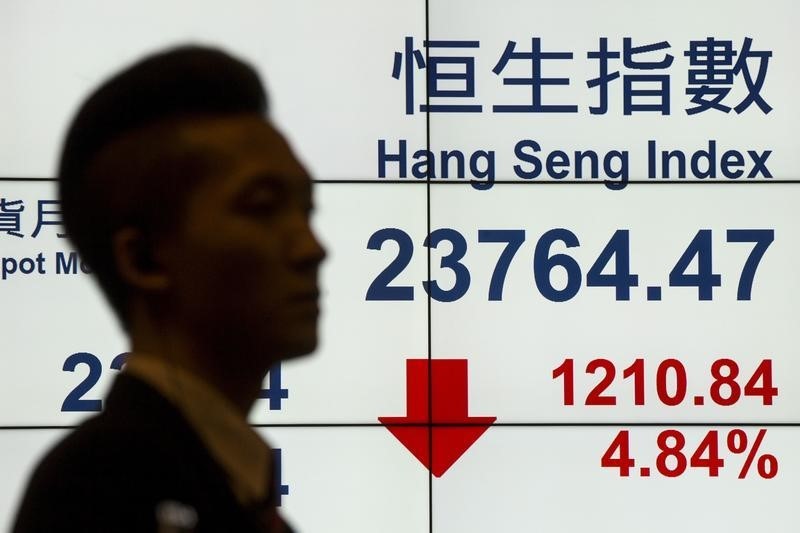SHANGHAI (Reuters) - China stocks climbed on Friday morning, with the Shanghai market heading for its biggest weekly rise in two months, as investors turned bullish after the central bank soothed fears created by the yuan's shock devaluation.
The yuan
"Yuan devaluation suddenly became a concern for stock investors earlier this week, but now this issue is fading out of their radar," said Qi Yifeng, analyst at consultancy CEBM.
"Some bold investors are going back into the market, chasing hot concepts, but I don't think they would hold the shares for a long time."
The Shanghai Composite Index (SSEC) gained 0.8 percent, to 3,987.57 points, bringing the week's gain to 6.5 percent, the most since early June. The CSI300 index (CSI300) rose 0.6 percent.
The Hong Kong market was also calmer, with both the Hang Seng index (HSI) and the Hong Kong China Enterprises Index (HSCE) up 0.2 percent at midday.
In a sign of improving confidence in the mainland market, the outstanding margin loans - money investors borrowed from brokerages to buy stocks - increased slightly over the past week, signalling an end to weeks of rapid deleveraging.
Waigaoqiao FTZ (SS:600648) surged 10 percent, the daily upward limit, after the Shanghai government-controlled company announced a major restructuring of its assets.
Investor interest in listed state-owned companies was also rekindled by a stock ownership incentive plan announced by Chinese liquor maker Wuliangye Yibin (SZ:000858).
Reform expectations pushed up prices of state firms including Luoyang Glass (SS:600876) and Guangdong Electric Power (SZ:000539).
Many Tianjin-based companies, which slumped on Thursday following explosions in the northeastern port city, rebounded. Nearly a dozen companies issued statements saying their losses were limited.
The companies included Tianjin Port Holdings Co (SS:600717), Tianjin Economic-technological Development Area Ltd (SZ:000652) and Binghai Energy (SZ:000695).

In Hong Kong, telecommunications (HSCIT) and Utility stocks (HSCIU) led gains, while energy (HSCIE) and property shares (HSCIPC) fell.